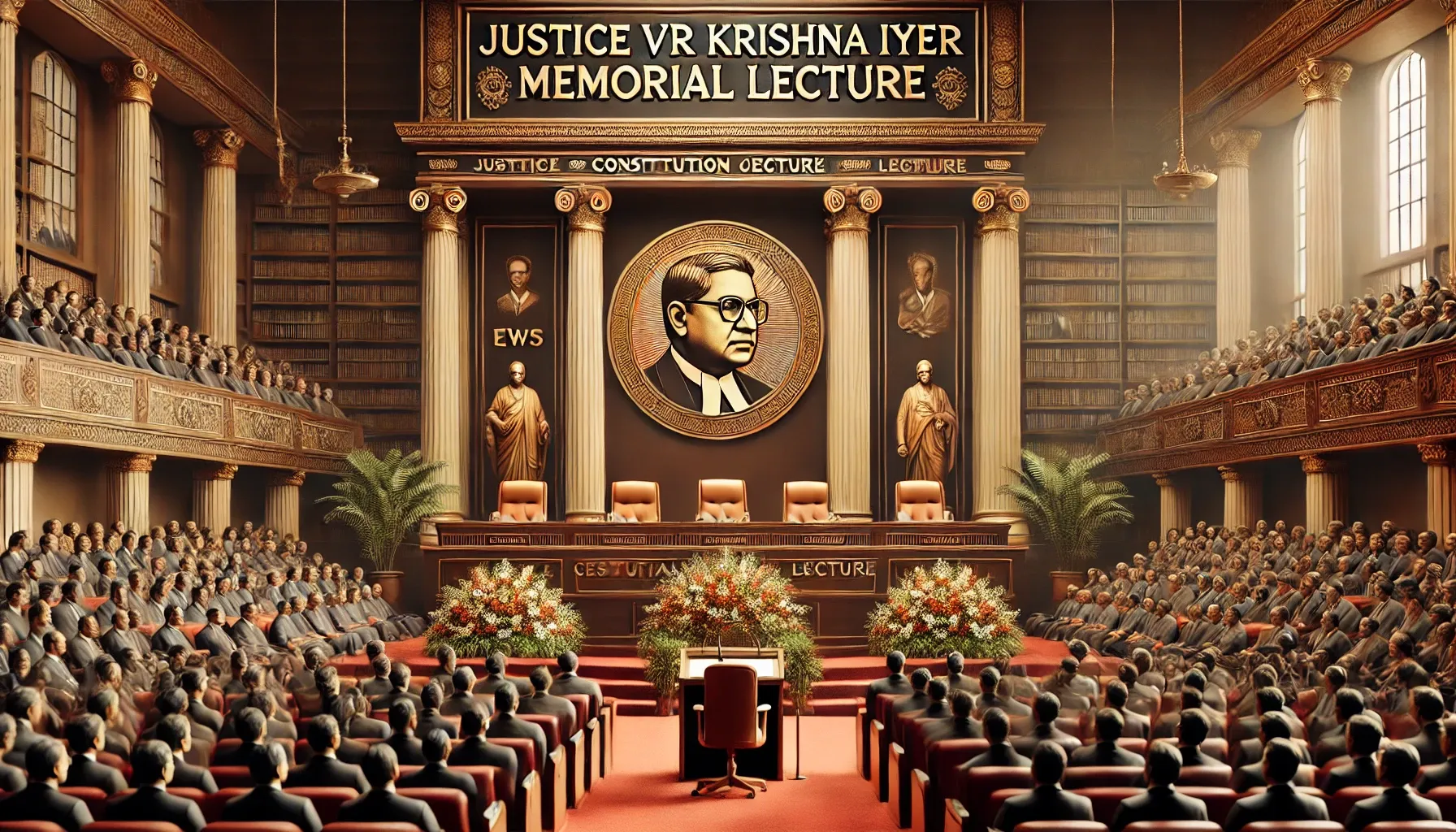Justice Nariman critiques EWS judgment, calling it “a distortion” of the Constitution. He highlights how economic-based reservation conflicts with historical justice and constitutional limits.

On December 7, 2024, during the Justice VR Krishna Iyer Memorial Lecture, Justice Rohinton Fali Nariman sharply criticized the EWS judgment upholding the 103rd Constitutional Amendment. The judgment, which granted 10% reservation to Economically Weaker Sections (EWS) in education and public employment, was called “constitutionally flawed” by Justice Nariman. He argued that it disregarded the original intent of reservation, which was to uplift historically marginalized communities, including Scheduled Castes (SCs), Scheduled Tribes (STs), and Other Backward Classes (OBCs).
Source: Live Law Youtube Channel
Key Critiques by Justice Nariman
- EWS Quota and Constitutional Law:
- Justice Nariman strongly disagreed with the EWS judgment, stating that it was “in the teeth of Articles 15(1), 16(1), and 46.”
- He emphasized that economic criteria cannot override constitutional provisions meant for historically disadvantaged groups.
- “Turning the Constitution on Its Head”:
- He argued that the 103rd Amendment fundamentally altered the purpose of reservation.
- He said, “You are excluding those for whom reservation was originally meant, and including those for whom it was never intended.”
Critique of Economic Criteria for Reservation
- Disregard for Historical Injustices:
- Justice Nariman pointed out that reservation was originally designed to address historical wrongs.
- Including Upper Castes, Muslims, and Christians in reservation is not in line with this principle.
- Article 46 and Economic Reservation:
- He reiterated that Article 46 does not support economic-based reservation but focuses on uplifting backward classes through social and educational equity.
Issues with the Majority Judgment
- Ignoring the 50% Ceiling Limit:
- Justice Nariman noted that the 50% reservation ceiling was ignored by the majority.
- He argued that this violated Article 16(4)(B), which constitutionally limits total reservation to 50%.
- Inclusion of Upper Classes:
- The 103rd Amendment introduced reservation for Upper Classes, which was never intended under the Constitution.
- This, he argued, was “turning the Constitution on its head.”
The Minority View and Its Strength
- Appreciating Justice Bhat’s Dissent:
- Justice Nariman expressed his appreciation for the minority view of Justice Ravindra Bhat.
- Justice Bhat had argued against the 50% ceiling being breached and the exclusion of SCs, STs, and OBCsfrom the EWS quota.
- Justice Bhat’s Argument on Article 16(6):
- Justice Bhat had pointed out that Article 16(6) lacked the “adequacy of representation” provision found in Articles 16(4) and 16(4A).
- Justice Nariman agreed with this critical view on the EWS amendment.
Reconciliation of Articles 16(4)(B) and 16(6)
- Potential for Harmonizing Provisions:
- Justice Nariman suggested that the EWS quota could have been implemented by reducing quotas for OBCsto accommodate the EWS.
- This would have been in line with constitutional provisions while respecting the 50% ceiling.
- Reservation Beyond 50% Ceiling:
- He strongly opposed allowing the total reservation to exceed 50%, which violated constitutional limits.
Broader Constitutional Implications
- Inclusion Without Historical Wrong:
- Justice Nariman raised concerns about including groups like the Upper Castes and Muslims, who did not suffer historical wrongs like the SCs, STs, and OBCs.
- By doing so, the amendment violated the original concept of reservation aimed at those who faced historical discrimination.
- Legal and Moral Concerns:
- Justice Nariman argued that the judgment’s focus on economic criteria for reservation overlooks social justice.
- He warned that it undermines the core idea behind affirmative action for the marginalized communities.
Source: Justice VR Krishna Iyer Memorial Lecture by Justice Rohinton Nariman





